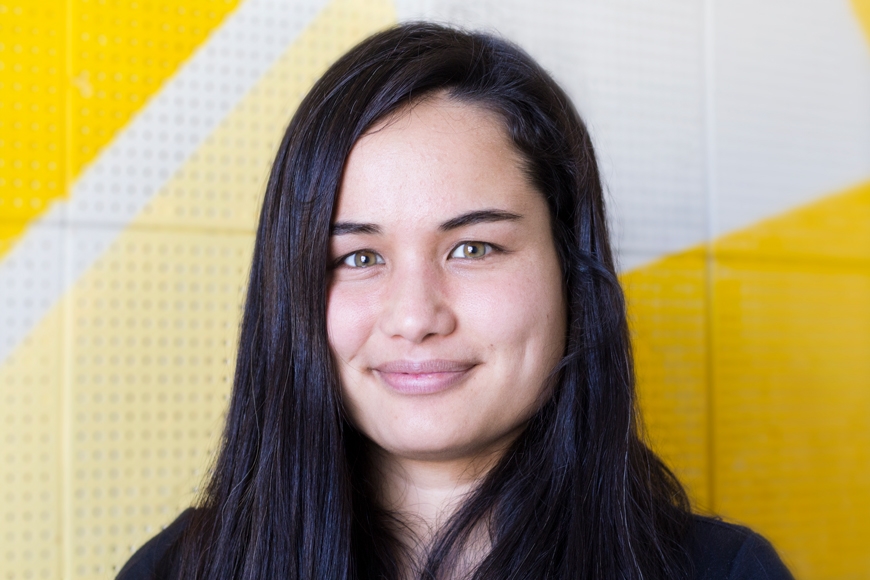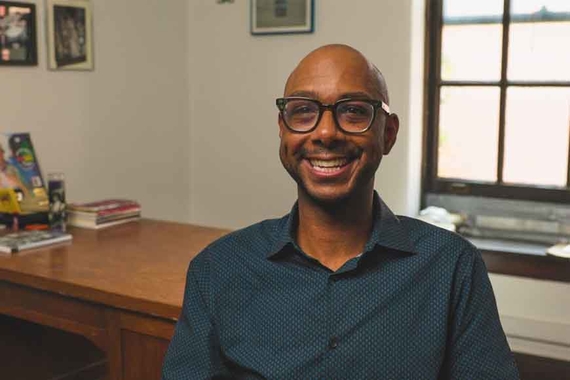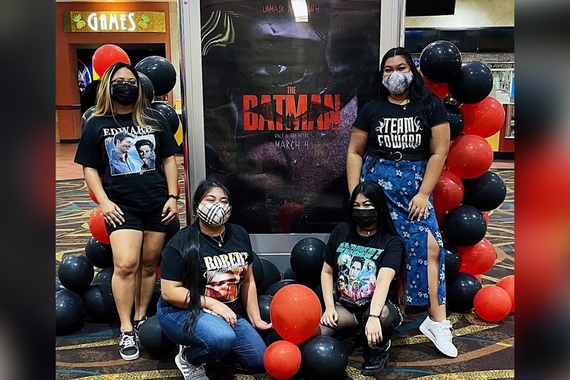A PhD with a Purpose
“I got a piece of advice that I always thought was incredibly useful when I was considering where to pursue my graduate studies. It was to go to the place where the faculty can support the weaknesses in your knowledge,” says Hana Maruyama, who had been researching Japanese American incarceration and wanted to continue her research in graduate school. It’s a subject she has a personal family connection to, but even so, she knew she didn’t have all the answers yet.
After earning her BA in English from Carleton College, Maruyama worked for the Heart Mountain Interpretive Center and later the Smithsonian Asian Pacific American Center. This led her to pursue a PhD with the Department of American Studies. “I wanted a department that would not only allow my interests to be interdisciplinary but also encourage that kind of research,” Maruyama explains.
Conducting and Connecting to Research
Maruyama is currently researching Japanese American incarceration in the context of US settler colonialism. While working for the Heart Mountain Interpretive Center, Maruyama learned that the Apsáalooke American Indian Nation, more commonly known in English as the Crow Nation, had been displaced from Heart Mountain, Wyoming. “Seventy years later, during World War II, my grandmother and nearly 14,000 other people of Japanese ancestry were forced [to relocate] to Heart Mountain. The irony of those forced displacements—one from the site, the other one to that site—always stuck with me,” she explains. What’s more, Maruyama’s grandfather’s family had been incarcerated at Gila River, which is on the Gila River Indian Tribes Reservation. “It struck me as an odd coincidence that there were two examples of Native displacement just in my own family history,” she says.
Maruyama notes that she has been fortunate to take courses with Professors David Chang and Jean O’Brien. Chang is a historian of indigenous people, colonialism, borders, and migration in Hawaii and North America and O’Brien specializes in American Indian Studies, Native American Representations, ethnohistory, and US colonial history. “Settler colonialism is interwoven with basically every aspect of American history,” Maruyama says. “What happened during Japanese American incarceration is not coincidental at all—it’s just how US settler colonialism has always and continues to function.” She further explains how settler colonial studies is critical for thinking about how governmental structures work, but that by focusing on those structures, it is always in danger of erasing the voices of those affected by them.
A Supportive Place to Study
“The more I learned about the programs at the U, the more I knew it was a great fit for my interests and my research,” says Maruyama, citing opportunities like the brand new graduate minor in heritage studies and public history, which she is completing. “I was also really impressed that people would take the time to speak with me and seemed really interested and invested in my work,” she says. Professors Erika Lee and Kevin Murphy helped her navigate the process of applying for the PhD program and connected her with other faculty members to further develop her research proposal. “I thought that if they were willing to do that for a prospective student, they must be really good mentors for their actual students—and that’s absolutely continued to be the case for me,” Maruyama says. She has received support from faculty in a variety of disciplines, including her advisors, Professors David Chang, in history, and Juliana Hu Pegues, in American Indian studies and Asian American Studies.
Maruyama enjoys the freedom that American studies gives her to learn from a diverse array of courses and to work with professors both inside and outside of the discipline. The department supports her in other significant ways, too. Last year, they nominated her for a CLA fellowship—which she won—and this year, she gained valuable teaching experience by working as a Teaching Assistant (TA). She takes joy in seeing her students incorporate the lessons from class into their own lives. “I’m TAing for Pop Culture and Politics classes, and sometimes students will mention a movie they just watched and how they saw the themes of the class emerging in that movie,” Maruyama says. “To me, that shows that not only do they understand the topic, but they’re also able to apply the concepts and think critically about the role pop culture plays in their lives and the world around them.”
Current Projects & Future Plans
Currently, Maruyama is working on a podcast on Japanese American Incarceration during World War II for American Public Media, where she’s learning about other forms of public history. She is also helping Professor Yuichiro Onishi and the Japanese American Citizens League of the Twin Cities on an exhibition about Japanese American resettlement to the Twin Cities during and after World War II. “After leaving camp, my great-uncle had studied at the University of Minnesota and then was drafted into the Military Intelligence Service and trained at Fort Snelling during World War II, so this is a really incredible opportunity to learn about the community that he was in,” Maruyama says. “My dad grew up in Minnesota too, so it’s been great to learn more about the experiences of Japanese Americans in Minnesota.” Maruyama is also involved with a reading group on historical injustices. “I feel very lucky to be surrounded by people who are so passionate about their research and about making that research accessible to the public,” she says. The American studies department has given Maruyama what she needs to pursue her dream career in academia and public history.
This story was written by an undergraduate student account executive in CLAgency. Meet the team.



